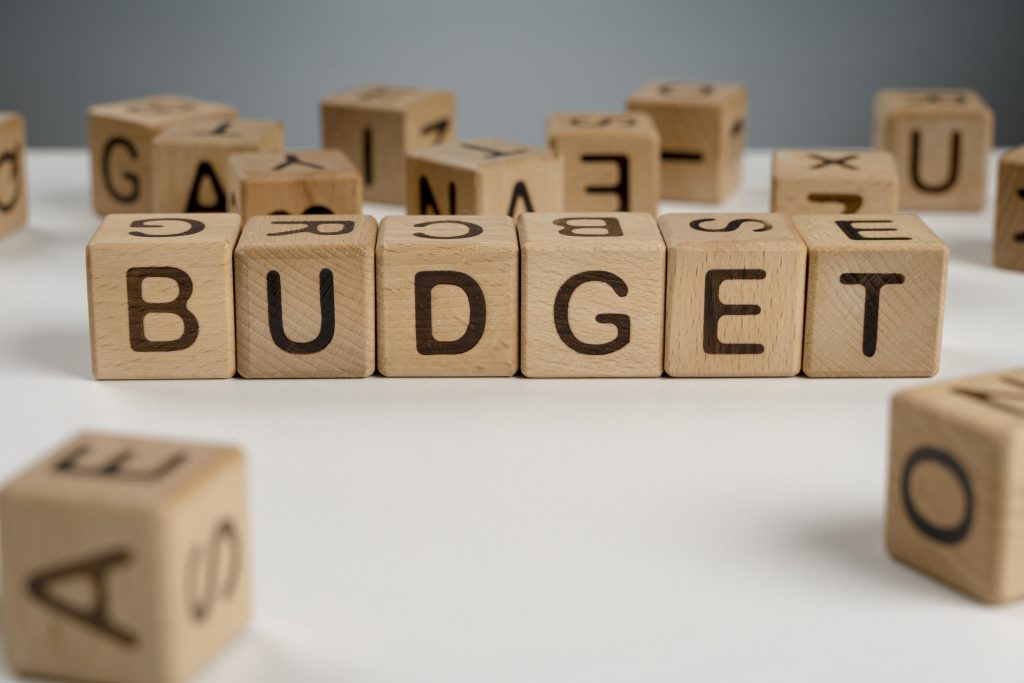In this comprehensive guide, we’ll explore a wide range of strategies and tips on how to save money. We will cover everything, including how to save money on groceries, housing, transportation, entertainment, and more!
Whether you’re looking to pay off debt, build an emergency fund, or start investing for the future, the money-saving tips and techniques outlined in this guide will help you achieve your financial goals. So, let’s dive in and start saving smarter!
Table of Contents
- Understanding the Importance of Saving Money
- Tracking Your Expenses: Identifying Where Your Money Goes
- Creating a Money Saving Budget that Works for You
- How to Save Money on Groceries
- Trimming Your Housing Costs – Saving on Rent, Mortgage, and Utilities
- How to Save Money on Transportation & Gas
- How to Save Money on Healthcare Costs
- How to Save Money & Lower Your Entertainment Expenses
- How to Save Money on Clothing and Personal Care Items
- How to Travel on a Budget and Save Money While Traveling
- Tips for Saving Money on Gifts and Special Occasions
- Saving Money By Canceling Automatic Subscriptions and Memberships You Don’t Use.
- Paying Off Debt: Strategies for Becoming Debt-Free
- How to Plan for the Future: Investing, Retirement, and Long-Term Savings
- Frugal Fun: A Big List of Free, Low-Cost & Money Saving Activities for Everyone
- Building a Frugal & Money Saving Mindset: Staying Motivated and Disciplined
- Final Thoughts on How to Save Money
Understanding the Importance of Saving Money
Saving money is an essential life skill that can help you achieve your financial goals and secure your future. Whether you’re saving for a down payment on a house, a vacation, or retirement, the key to success is to make saving a priority. In this article, we’ll discuss the importance of saving money and provide some practical tips to help you get started.
Emergency Fund
One of the most critical reasons to save money is to build an emergency fund. An emergency fund is a savings account that you can use to cover unexpected expenses, such as car repairs, medical bills, or job loss. Having an emergency fund can give you peace of mind and protect you from financial stress and debt.
To build an emergency fund, start by setting a savings goal. Aim to save at least three to six months of living expenses in a separate account. This can be challenging, but you can start by setting aside a small amount each month and gradually increasing it over time. You can also automate your savings by setting up a direct deposit or automatic transfer from your checking account to your emergency fund.
Achieving Financial Goals
Saving money can help you achieve your financial goals, such as buying a house, starting a business, or retiring comfortably. By saving money regularly, you can accumulate a significant amount over time and use it to reach your goals.
Set specific, measurable, achievable, relevant, and time-bound (SMART) goals to achieve your financial goals. For example, if you want to buy a house in five years, determine how much you need to save each month to reach your goal. Then, plan to achieve your savings target by cutting expenses, increasing your income, or investing your savings.
Building Wealth
Saving money can also help you build wealth over time. Investing your savings in stocks, bonds, or real estate can earn a return on your investment and grow your wealth. Investing can help you beat inflation and increase your net worth.
To build wealth through investing, understand your risk tolerance and investment goals. Consider working with a financial advisor to create a diversified investment portfolio that aligns with your risk profile and goals.
Retirement Planning
Saving money is essential for retirement planning. By saving early and regularly, you can build a nest egg to provide income during retirement. Many retirement accounts, such as 401(k)s and individual retirement accounts (IRAs), offer tax benefits to help you save more efficiently.
To plan for retirement, determine how much you need to save to retire comfortably. Then, create a retirement savings plan and regularly contribute to your retirement accounts. Consider working with a financial advisor to help create a retirement plan that meets your needs and goals.
Saving money is an essential life skill to help you achieve your financial goals and secure your future. Whether you’re building an emergency fund, achieving financial goals, building wealth, or planning for retirement, the key to success is to prioritize saving and developing a saving habit, you can improve your financial health and create a more stable future for yourself and your loved ones.

Tracking Your Expenses: Identifying Where Your Money Goes
Tracking your expenses is essential in managing your finances and achieving your goals. By identifying where your money goes, you can make informed decisions about your spending habits and create a budget that aligns with your financial goals. In this article, we’ll discuss some practical tips on how to track your expenses and identify where your money goes.
Keep Track of Every Purchase
The first step in tracking your expenses is tracking every purchase. This includes everything from your morning coffee to your monthly rent payment. There are several ways to do this, such as using a spreadsheet, a budgeting app, or a pen and paper.
Record the date, amount, and category of each purchase. Categories might include housing, transportation, food, entertainment, and utilities. Be as specific as possible when categorizing your expenses. For example, instead of simply categorizing a purchase as “shopping,” specify whether it was for clothing, home goods, or electronics.
Review Your Expenses
Once you’ve tracked your expenses for a month or two, review your expenses and analyze your spending patterns. Look for areas where you’re overspending or spending on unnecessary items. You might be spending too much money on eating out or buying clothes.
Identify areas where you can cut back, such as cooking at home instead of eating out or canceling subscription subscriptions you don’t use. Be realistic about your expenses and balance saving money and enjoying your life.
Create a Budget
Once you’ve reviewed your expenses and identified areas where you can cut back, create a budget. A budget is a financial plan that outlines your income, expenses, and savings goals. It can help you prioritize your spending and save money for future goals.
Start by identifying your income and fixed expenses, such as rent, utilities, and car payments. Then, allocate a portion of your income to variable expenses, such as groceries, entertainment, and clothing. Finally, allocate a portion of your income to savings and debt repayment.
Use Technology
Several budgeting apps and tools can help you track your expenses and create a budget. These apps can sync with your bank accounts and credit cards to track and categorize your expenses. Some popular budgeting apps include Mint, YNAB (You Need a Budget), and Personal Capital.
You can also use technology to set up automatic savings transfers. For example, you can set up a direct deposit into a savings account or use a savings app that rounds up your purchases and saves the difference.
Tracking your expenses is essential in managing your finances and achieving your goals. By keeping track of every purchase, reviewing your expenses, creating a budget, and using technology, you can take control of your money and create a more stable future for yourself and your loved ones.

Creating a Money Saving Budget that Works for You
Creating a budget is essential in managing your finances and achieving your financial goals. A budget is a financial plan that outlines your income, expenses, and savings goals. It can help you prioritize your spending, reduce debt, and save money for future goals. In this article, we’ll discuss some practical tips on creating a budget that works for you.
Identify Your Income
The first step in creating a budget is to identify your income. This includes your salary, bonuses, and any other sources of income, such as rental income or freelance work. If you have a variable income, estimate an average monthly income based on your past earnings.
List Your Expenses
The next step is to list your expenses. This includes all your fixed expenses, such as rent, utilities, car payments, and insurance. It also includes your variable expenses, such as groceries, entertainment, and clothing. Be as specific as possible when listing your expenses, and include any periodic or annual expenses, such as car registration or holiday gifts.
Prioritize Your Spending
Once you’ve listed your expenses, prioritize your spending. Identify which expenses are essential, such as housing and utilities, and which are discretionary, such as entertainment and eating out. Find a balance between spending on important things and money for your future goals.
Allocate Your Income
After prioritizing your spending, allocate your income. Start by deducting your fixed expenses from your income. Then, allocate some of your income to your variable expenses, such as groceries and entertainment. Finally, allocate a portion of your income to savings and debt repayment.
Monitor Your Budget
Once you’ve created a budget, it’s important to monitor your spending and adjust it as needed. Keep track of your expenses and compare them to your budget regularly. If you’re overspending in certain categories, look for ways to cut back or adjust your budget.
Use Budgeting Tools
Several budgeting tools and apps can help you create and monitor your budget. These tools can help you track your expenses, set savings goals, and automate your savings. Some popular budgeting tools include Mint, YNAB (You Need a Budget), and Personal Capital.
Creating a budget is essential in managing your finances and achieving your financial goals. By identifying your income, listing your expenses, prioritizing your spending, allocating your income, monitoring your budget, and using budgeting tools, you can take control of your money and create a more stable future for yourself and your loved ones.

How to Save Money on Groceries
Grocery shopping is an essential part of our daily lives but can also be a significant drain on our wallets. According to a recent survey, the average American household spends around $6000 per year on groceries. However, with some planning and effort, you can save significant money on your grocery bills. In this article, we’ll share some practical tips and tricks to help you save money on groceries without sacrificing quality or nutrition.
Plan Your Meals in Advance
One of the best ways to save money on groceries is to plan your meals. Meal planning can help you save time and money while ensuring a healthy and varied diet. When you plan your meals, you can make a shopping list of only the items you need, which can prevent impulse buying and waste. Also, meal planning can help you use any ingredients you already have in your pantry or fridge.
Plan your meals by deciding what dishes you want to make for the week. You can use recipe books, websites, or apps to get inspiration. Once you’ve chosen your meals, make a shopping list of all the ingredients you need. Try to include versatile items that can be used in multiple dishes to minimize waste. Lastly, be realistic about how much time and energy you have to prepare your meals. Quick and easy recipes can save you time and money, especially on busy weeknights.
Make a Shopping List and Stick to It
Making a shopping list is a great way to stay on track and avoid impulse buying. When you go grocery shopping without a plan, you’re more likely to buy items you don’t need, which can quickly add up. By making a shopping list, you can also ensure you have all the ingredients you need to prepare your meals.
To make a shopping list, start by reviewing your meal plan and identifying the ingredients you need for each dish. Then, add any household staples, such as milk, eggs, bread, and fruit, to your list. Organize your list by categories, such as produce, dairy, meat, and pantry items, to make shopping easier. When you’re at the store, stick to your list and avoid buying items that aren’t on it.
Buy in Bulk
Buying in bulk is a great way to save money on groceries, especially for frequently used items, such as rice, pasta, canned goods, and spices. Buying in bulk can save money in the long run, but storing the items properly is essential to prevent spoilage or waste. Before buying in bulk, ensure you have enough storage space and consider investing in storage containers or a vacuum sealer to keep the items fresh.
Look for Sales and Discounts
Another way to save money on groceries is to take advantage of sales and discounts. Look for flyers and online promotions to find deals on your needed items. However, it’s essential to be mindful of your needs and avoid buying items you don’t need just because they’re on sale. Also, consider buying items on sale in bulk to maximize your savings.
Use Coupons and Promo Codes
Coupons and promo codes can significantly reduce grocery bills, especially with sales and discounts. You can find coupons and promo codes online on various websites and social media platforms. You can also sign up for loyalty programs and newsletters from your favorite stores to receive exclusive discounts.
To use coupons and promo codes, present them at the checkout or enter them online when purchasing. Read the fine print and check the expiration date to avoid disappointment.
Shop at Discount Stores
Discount stores and generic brands offer quality products at lower prices than name brands. Shopping at discount stores can help you save money on groceries, especially for pantry staples and household items. Discount stores often have lower overhead costs than traditional grocery stores, allowing them to offer lower prices.
When shopping at discount stores, be sure to check the expiry dates and read the labels carefully to ensure the quality of the products. Also, remember that not all products at discount stores are cheaper than at traditional grocery stores, so compare prices before purchasing.
Buy Generic and Store Brands
Generic and store brands are often cheaper than name brands, but they can be as good in quality. The same manufacturers make many store brands as name brands but without fancy packaging and advertising. When shopping, compare the prices of name and store brands to find the best value for your money.
Also, read the labels to ensure that the store brand product is of the same quality as the name brand. For example, check the ingredient list and nutritional information to ensure that the store brand product is as healthy and nutritious as the name brand.
Avoid Convenience Foods
Convenience foods, such as frozen dinners, pre-cut vegetables, and packaged snacks, are often more expensive and less healthy than homemade meals. By preparing meals at home, you can save money and control the quality of the ingredients. Additionally, home-cooked meals are often healthier and more nutritious than conventional foods.
To avoid convenience foods, plan your meals and prepare them in bulk if possible. This will save you time and money in the long run. Also, try to keep healthy snacks, such as fruit, nuts, and seeds, to avoid the temptation of buying packaged snacks.
Use Cashback and Reward Programs
Cashback and reward programs can help you earn money or points that you can use to save money on groceries. Many credit cards, loyalty programs, and grocery store chains offer cashback or reward programs that allow you to earn points or cashback on your purchases.
To take advantage of these programs, sign up for them and use them whenever possible. Read the terms and conditions to understand how the programs work and how you can redeem your rewards.
Don’t Waste Food
Reducing food waste can help you save money and protect the environment. When you waste food, you’re essentially throwing away money. To reduce food waste, plan your meals, buy only what you need, and use up leftovers.
To store food properly, use airtight containers and label them with the date to avoid spoilage. Also, freeze leftovers if you can only eat them within a few days. You can also get creative with your leftovers by using them in new recipes or adding them to salads and soups.
Saving money on groceries is easier than you think. You can reduce your grocery bills by planning your meals, making a shopping list, buying in bulk, and taking advantage of sales and discounts. Remember to use coupons and promo codes, shop at discount stores, and buy generic and store brands whenever possible.

Trimming Your Housing Costs – Saving on Rent, Mortgage, and Utilities
Housing costs are among the most significant expenses for many people, but there are ways to trim your costs without sacrificing comfort or safety. Whether you’re renting or own a home, there are several ways to reduce your housing costs, such as negotiating your rent or mortgage, reducing your utility bills, or downsizing your living space. In this article, we’ll discuss some practical tips on how to trim your housing costs.
Negotiate Your Rent or Mortgage
One of the most effective ways to trim your housing costs is to negotiate your rent or mortgage. Ask your landlord if they’re willing to lower your rent if you’re renting. Explain your situation, such as a decrease in income or an increase in expenses, and be respectful and polite. Your landlord may be willing to negotiate, especially if you’re a good tenant.
If you own a home, consider refinancing your mortgage. Refinancing can help you reduce your interest rate and lower your monthly mortgage payment. Contact several lenders and compare their rates and fees. Make sure to consider the total cost of refinancing, including any closing costs.
Reduce Your Utility Bills
Another way to trim your housing costs is to reduce your utility bills. This includes your electricity, gas, water, and internet bills. There are several ways to reduce your utility bills, such as:
- Installing energy-efficient appliances and light bulbs
- Turning off lights and electronics when not in use
- Using a programmable thermostat to control your heating and cooling.
- Taking shorter showers and using a low-flow showerhead
- Turning off the water when brushing your teeth or shaving
- Comparing internet and phone plans to find the best deals.
Downsizing Your Living Space
Consider downsizing your living space if you want to make a bigger change. This can help you reduce your rent or mortgage, as well as your utility bills and maintenance costs. Consider moving to a smaller apartment, home, or even a tiny house or RV. Make sure to consider your needs and lifestyle when downsizing your living space.
Sharing Your Living Space
Another option is to share your living space with roommates or family members. This can help you split the cost of rent or mortgage and reduce your utility bills. Set clear boundaries and expectations, and choose roommates or family members you trust and get along with.
Trimming your housing costs is an effective way to save money and reduce your financial stress. You can lower your housing costs without sacrificing comfort or safety by negotiating your rent or mortgage, reducing your utility bills, downsizing your living space, or sharing your living space.

How to Save Money on Transportation & Gas
Transportation costs, including gas, can add up quickly and take a significant portion of your monthly budget. However, several ways exist to save money on transportation and gas without sacrificing convenience or safety. In this article, we’ll discuss some practical tips on how to save money on transportation and gas.
Use Public Transportation
Using public transportation, such as buses, trains, or subways, is a cost-effective way to save money on transportation. Public transportation can be significantly cheaper than owning a car, and it can also reduce your carbon footprint. Additionally, many cities offer discounted or free public transportation for seniors, students, and low-income individuals.
Carpool or Use Ridesharing Services
Carpooling or using ridesharing services, such as Uber or Lyft, is another way to save money on transportation. By sharing a ride with others, you can split the cost of gas and reduce wear and tear on your car. Additionally, many ridesharing services offer shared rides cheaper than solo rides.
Walk or Bike
Walking or biking is a free and healthy way to save money on transportation. If you live near your workplace or other destinations, consider walking or biking instead of driving. This can also help you save money on gas and reduce your carbon footprint.
Maintain Your Vehicle
Maintaining your vehicle is crucial to saving money on gas and reducing the risk of costly repairs. Regular maintenance, such as oil changes, tire rotations, and air filter replacements, can improve your car’s fuel efficiency and lifespan. Keep your tires properly inflated and avoid aggressive driving, which can decrease fuel efficiency.
Shop Around for Gas
Gas prices vary significantly depending on where you live and where you buy gas. To save money on gas, shop around for the lowest prices in your area. Use gas price comparison apps or websites to find the best deals, and consider filling up during off-peak hours, such as early mornings or late evenings.
Saving money on transportation and gas effectively reduces your monthly expenses and saves for your future goals. You can save money without sacrificing convenience or safety by using public transportation, carpooling, ridesharing services, walking or biking, maintaining your vehicle, and shopping around for gas.

How to Save Money on Healthcare Costs
Healthcare costs can be a significant expense for many people, but there are several ways to lower your healthcare costs without sacrificing the quality of care. In this article, we’ll discuss some practical tips on how to lower your healthcare costs.
Choose the Right Insurance Plan
Choosing the right insurance plan can help you save money on healthcare costs. When selecting a plan, consider your healthcare needs and budget. If you’re relatively healthy and don’t need frequent medical care, a high-deductible plan with lower premiums might be the best choice. If you have ongoing medical needs, a lower-deductible plan with higher premiums might be a better option.
Use In-Network Providers
Using in-network providers can help you save money on healthcare costs. In-network providers have negotiated lower rates with insurance companies, which can result in lower out-of-pocket costs for you. Before scheduling medical procedures, confirm that the provider is in-network with your insurance plan.
Shop Around for Healthcare Services
Like shopping around for gas prices, you can also shop for healthcare services. Compare prices for medical procedures, tests, and treatments at different providers to find the best deal. Some healthcare providers offer lower cash prices than the prices they charge insurance companies.
Take Advantage of Preventive Care
Preventive care can help you avoid costly medical treatments in the future. Many insurance plans cover preventive care, such as annual check-ups, immunizations, and cancer screenings, at no cost to you. Take advantage of these services to prevent future health problems and save money on healthcare costs.
Use Generic Medications
Using generic medications instead of brand-name medications can help you save money on prescription drugs. Generic medications contain the same active ingredients as brand-name medications but are significantly cheaper. Talk to your healthcare provider or pharmacist about using generic medications for your prescriptions.
Lowering your healthcare costs effectively reduces your monthly expenses and saves money for your future goals. By choosing the right insurance plan, using in-network providers, shopping around for healthcare services, taking advantage of preventive care, and using generic medications, you can save money on healthcare costs without sacrificing the quality of care.

How to Save Money & Lower Your Entertainment Expenses
Entertainment expenses, such as dining out, movies, or concerts, can add up quickly and take a significant portion of your monthly budget. However, several ways exist to lower your entertainment expenses without sacrificing fun or relaxation. In this article, we’ll discuss some practical tips on how to lower your entertainment expenses.
Cook at Home
Cooking at home is a cost-effective way to lower your entertainment expenses. Eating out can be significantly more expensive than cooking at home, especially if you’re dining at restaurants or ordering takeout frequently. Consider meal planning and grocery shopping to ensure you have ingredients for healthy and delicious meals at home.
Look for Free or Low-Cost Activities
There are many free or low-cost activities that you can enjoy, such as hiking, biking, or visiting museums. Check out local community events or festivals, often offering free entertainment, such as live music or outdoor movies. Many libraries offer free access to books, movies, and other resources.
Use Coupons or Discount Codes
Using coupons or discount codes can help you save money on entertainment expenses. Check out websites or apps like Groupon or RetailMeNot for discounts on dining out, movie tickets, or other activities. Sign up for email newsletters or loyalty programs from your favorite restaurants or venues to receive exclusive deals.
Host Potluck Dinners or Game Nights
Hosting potluck dinners or game nights with friends is a fun and cost-effective way to socialize without spending much money. Ask everyone to bring a dish or game, and enjoy spending time together without the expense of going out. You can also consider hosting a movie night at home instead of going to the theater.
Set a Budget
Setting a budget for entertainment expenses can help you control your spending and avoid overspending. Determine how much you will spend on entertainment each month, and stick to that budget. Consider tracking your expenses and adjusting your budget to ensure you stay within your means.
Lowering your entertainment expenses is an effective way to reduce your monthly expenses and save money for your future goals. You can enjoy entertainment without overspending by cooking at home, looking for free or low-cost activities, using coupons or discount codes, hosting potluck dinners or game nights, and setting a budget.

How to Save Money on Clothing and Personal Care Items
Clothing and personal care items are essential expenses, but they don’t have to be expensive. There are several ways to save money on clothing and personal care items without sacrificing style or hygiene. In this article, we’ll discuss some practical tips on how to save on clothing and personal care items.
Shop Second-hand
Shopping second-hand is a cost-effective way to save money on clothing and personal care items. Visit thrift stores, consignment shops, or online marketplaces like eBay or Poshmark to find high-quality items at a fraction of the cost. Scrutinize items and wash them before wearing or using them.
Look for Sales and Coupons
Looking for sales and coupons can help you save money on clothing and personal care items. Sign up for email newsletters or loyalty programs from your favorite stores to receive exclusive deals and discounts. Additionally, check out websites or apps like RetailMeNot or Honey for coupons and promo codes.
Buy Generic Brands
Generic brands can help you save money on personal care items like shampoo, soap, or toothpaste. Generic brands contain the same active ingredients as brand-name items but are significantly cheaper. Look for generic brands at your local drugstore or supermarket.
Take Care of Your Clothing and Personal Care Items
Taking care of your clothing and personal care items can prolong their lifespan and save you money in the long run. Follow the care instructions on the label, and avoid using harsh chemicals or hot water. Additionally, store items properly, such as hanging clothes on hangers or storing personal care items in a cool, dry place.
Borrow or Swap with Friends
Borrowing or swapping clothing and personal care items with friends is a fun and cost-effective way to refresh your wardrobe or try new products. Host a clothing swap party or organize a product exchange with friends to save money and reduce waste.
Saving money on clothing and personal care items effectively reduces your monthly expenses and saves money for your future goals. By shopping second-hand, looking for sales and coupons, buying generic brands, taking care of your items, and borrowing or swapping with friends, you can save money without sacrificing style or hygiene.

How to Travel on a Budget and Save Money While Traveling
Traveling can be an exciting and enriching experience, but it can also be expensive. However, there are several ways to travel on a budget and save money without sacrificing comfort or safety. In this article, we’ll discuss some practical tips on how to travel on a budget and save money traveling.
Choose the Right Time to Travel
Choosing the right time to travel can help you save money on transportation, accommodation, and activities. Consider traveling during the off-season, when prices are lower, and crowds are thinner. Additionally, booking your trip in advance can help you secure lower prices and avoid last-minute price hikes.
Use Travel Rewards Programs
Travel rewards programs, such as frequent flyer miles or hotel loyalty programs, can help you save money on transportation and accommodation. Sign up for these programs and accumulate points or miles through everyday spending. You can use these rewards to book flights, hotel rooms, or rental cars at discounted rates.
Stay in Hostels or Airbnb
Staying in hostels or Airbnb can be significantly cheaper than staying in hotels. Hostels offer shared accommodations, such as dorm rooms or shared bathrooms, at a fraction of the cost of hotels. At competitive prices, Airbnb offers private accommodations, such as apartments or houses. Additionally, staying in hostels or Airbnb can provide a more authentic and immersive travel experience.
Eat Like a Local
Eating like a local can help you save money on food and drinks. Avoid eating at tourist hotspots, which can be expensive and overpriced, and opt for local restaurants or street food vendors. Additionally, consider grocery shopping and preparing meals if you can access a kitchen.
Choose Free or Low-Cost Activities
There are many free or low-cost activities that you can enjoy while traveling. Check out local parks, museums, or cultural events, which often offer free admission or low-cost tickets. Additionally, consider taking a self-guided walking tour or exploring the city on foot to save money on transportation.
Traveling on a budget effectively reduces travel expenses and saves money for future goals. You can travel on a budget without sacrificing comfort or safety by choosing the right time to travel, using travel rewards programs, staying in hostels or Airbnb, eating like a local, and choosing free or low-cost activities. Implement these tips today and take control of your travel expenses.

Tips for Saving Money on Gifts and Special Occasions
Gifts and special occasions, such as birthdays, holidays, or weddings, can be expensive. However, there are several ways to save money on gifts and special occasions without sacrificing thoughtfulness or quality. In this article, we’ll discuss some practical tips on how to save money on gifts and special occasions.
Plan Ahead
Planning can help you save money on gifts and special occasions. Make a list of upcoming occasions and set a budget for each one. Consider shopping for gifts early to take advantage of sales or discounts.
Make Your Own Gifts
Making your own gifts can be a thoughtful and cost-effective way to show your love and appreciation. Consider crafting a personalized photo album or baking homemade treats for your loved ones.
Shop Sales and Clearance Sections
Shopping sales and clearance sections can help you save money on gifts and special occasion items. Check out your favorite stores for discounts or clearance items, and compare prices before purchasing.
Use Cashback and Rewards Programs
Cashback and rewards programs can help you save money on gifts and special occasions. Register for these programs and earn cashback or rewards points through everyday spending. You can use these rewards to offset the cost of gifts or special occasion items.
Consider Group Gifting
Group gifting is a cost-effective way to give a meaningful gift while sharing the cost with others. Consider organizing a group gift for a loved one, such as a joint contribution towards a special experience or item.
Use DIY Gift Wrapping and Presentation
DIY gift wrapping and presentation can add a personal touch to your gifts without spending much money. Consider using recycled materials like newspaper or tissue paper or adding a personalized note or decoration.
Saving money on gifts and special occasions effectively reduces expenses and saves money for your future goals. By planning, making your own gifts, shopping sales, and clearance sections, using cashback and rewards programs, considering group gifting, and using DIY gift wrapping and presentation, you can give thoughtful and meaningful gifts without breaking the bank.

Saving Money By Canceling Automatic Subscriptions and Memberships You Don’t Use.
Do you ever look at your bank statement and wonder where all your money is going? If so, you’re not alone. Many people should pay more attention to the small recurring charges for automatic subscriptions and memberships they no longer use. These charges can add up quickly and take a toll on your finances.
That’s why it’s important to closely examine your bank statements and cancel any automatic subscriptions or memberships you no longer use. This can be a quick and easy way to save monthly money and put more cash back in your pocket.
To get started, list all your current automatic subscriptions and memberships. This includes gym memberships, streaming services, and magazine subscriptions. Once you have a list, review each item and ask yourself if you’re using it. If the answer is no, it’s time to cancel.
Canceling these automatic subscriptions and memberships can be a simple process. Many companies allow you to cancel online, while others may require a phone call or email. Be sure to read the cancellation policy carefully and follow the instructions provided to avoid any unexpected charges.
Once you’ve canceled your unused subscriptions and memberships, monitor your bank statements regularly to ensure that you’re not being charged for any services you no longer use. This can be a good opportunity to review your budget and see where you can allocate the extra money you’re saving.
Canceling automatic subscriptions and memberships you don’t use can be an easy way to save monthly money. By taking a closer look at your bank statements and being proactive about canceling unused services, you can keep more money in your pocket and take control of your finances.

Paying Off Debt: Strategies for Becoming Debt-Free
Debt can be a significant source of stress and financial burden. However, with the right strategies and tools, you can become debt-free and regain control of your finances. In this article, we’ll discuss some practical tips on how to pay off debt and become debt-free.
Create a Budget and Stick to It
Creating a budget can help you identify areas where you can cut back on expenses and allocate more funds toward debt payments. Make a list of all your expenses and income and set aside a specific monthly amount for debt payments.
Prioritize Your Debt
Prioritizing your debt can help you pay off high-interest debt first and save money on interest charges. Consider using the debt snowball or avalanche method to prioritize your debt and create a repayment plan.
Negotiate with Creditors
Negotiating with creditors can help you reduce debt and save money on interest charges. Consider negotiating with your creditors to lower your interest rates or negotiate a payment plan that works for you.
Look for Extra Sources of Income
Looking for extra sources of income can help you increase your debt payments and pay off debt faster. Consider taking on a part-time job, selling unwanted items, or starting a side hustle to earn extra money.
Use Balance Transfers or Consolidation Loans
Using balance transfers or consolidation loans can help you consolidate your debt and save on interest charges. Look for credit cards or loans that offer low or zero interest rates for a specific period, and transfer your high-interest debt to these accounts.
Seek Professional Help if Necessary!
If you’re struggling with debt and finding it difficult to manage independently, seek professional help. Consider contacting a credit counseling agency or debt relief service for guidance and support in creating a debt repayment plan.
Becoming debt-free requires commitment, patience, and discipline. By creating a budget and sticking to it, prioritizing your debt, negotiating with creditors, looking for extra sources of income, using balance transfers or consolidation loans, and seeking professional help if necessary, you can become debt-free and regain control of your finances.

How to Plan for the Future: Investing, Retirement, and Long-Term Savings
Planning is essential to achieving long-term financial stability and security. Whether you’re investing for retirement or saving for a rainy day, you can use several strategies and tools to plan for your future. In this article, we’ll discuss some practical tips on planning for the future, including investing, retirement, and long-term savings.
Start Investing Early
Investing early can help you use compounding interest and grow your wealth over time. Consider opening a retirement account, such as a 401(k) or IRA, or investing in low-cost index funds or exchange-traded funds (ETFs).
Diversify Your Investments
Diversifying your investments can help you reduce risk and increase potential returns. Consider investing in a mix of stocks, bonds, and other asset classes to spread your risk and achieve a balanced portfolio.
Create a Retirement Plan
Creating a retirement plan can help you set goals and save for retirement. Estimate your retirement expenses, calculate your retirement income, and create a savings plan to help you achieve your retirement goals.
Save for Emergencies
Saving for emergencies can help you avoid debt and financial hardship in case of unexpected expenses, such as medical bills or home repairs. Aim to save at least 3-6 months’ living expenses in an emergency fund.
Consider Long-Term Savings Goals
Consider setting long-term savings goals, such as a down payment on a house or paying for your children’s college education. To save for these goals, create a savings plan and consider using tax-advantaged accounts, such as a 529 plan or a health savings account (HSA).
Seek Professional Help if Necessary!
If you need help with how to plan for the future or need help creating a financial plan, seek professional help. Consider contacting a financial advisor or planner for guidance and support in creating a comprehensive financial plan.
Planning is crucial to achieving long-term financial stability and security. By starting to invest early, diversifying your investments, creating a retirement plan, saving for emergencies, considering long-term savings goals, and seeking professional help if necessary, you can plan for your future and achieve your financial goals.

Frugal Fun: A Big List of Free, Low-Cost & Money Saving Activities for Everyone
Having fun doesn’t have to be expensive. There are many free and low-cost activities that you can enjoy with family and friends. In this article, we’ll provide everyone a big list of free and low-cost activities.
Visit Local Parks and Nature Reserves: Local parks and nature reserves offer many free activities like hiking, biking, or picnicking. You can also take advantage of free outdoor concerts, movies, or festivals often held in public parks.
Attend Community Events and Festivals: Community events and festivals are great for fun and connecting with your community. Many events offer free or low-cost admission and include activities such as live music, food vendors, and art exhibits.
Explore Museums and Art Galleries: Many museums and art galleries offer free admission or discounted rates on certain days or for specific groups, such as students or seniors. Take advantage of these opportunities to explore and learn something new.
Host Game Nights or Potluck Dinners: Hosting game nights or potluck dinners with friends and family is a fun and cost-effective way to socialize. Also, hosting themed parties or movie nights to add variety.
Volunteer for a Cause You Care About: Volunteering for a cause you care about is a fulfilling way to give back to your community and meet new people. Look for volunteer opportunities at local organizations or events.
Take a DIY or Craft Class: Taking a DIY or craft class is a fun way to learn a new skill or hobby. Many community centers or local businesses offer these classes at low or discounted rates.
Enjoy Free Outdoor Activities: Many free outdoor activities include playing sports, fishing, or having a picnic. You can also try stargazing or birdwatching for a unique outdoor experience.
Visit a Farmer’s Market: Visiting a farmer’s market is a fun way to support local farmers and artisans while enjoying fresh produce and handmade products. Many markets also offer live music or other free entertainment.
Try Geocaching: Geocaching is a fun and free activity that combines outdoor exploration with treasure hunting. You can download a geocaching app on your phone and search for hidden caches in your area.
Have a Movie Night at Home: Having a movie night at home with friends or family is a fun and cost-effective way to enjoy a movie. You can also try renting movies from your local library for free.
There are many free and low-cost activities that you can enjoy with family and friends. By visiting local parks, attending community events, exploring museums, hosting game nights or potluck dinners, volunteering for a cause, taking a DIY or craft class, enjoying free outdoor activities, visiting a farmer’s market, trying geocaching, or having a movie night at home, you can have fun without breaking the bank. So, explore these activities today and enjoy frugal fun with your loved ones.

Building a Frugal & Money Saving Mindset: Staying Motivated and Disciplined
Building a frugal and money-saving mindset can be challenging, but it’s essential to achieving financial stability and security. By staying motivated and disciplined, you can create sustainable habits that will help you save money and achieve your financial goals. In this article, we’ll discuss some practical tips on how to build a frugal and money-saving mindset and stay motivated and disciplined.
- Set Realistic Goals: Setting realistic goals can help you stay motivated and focused on your financial journey. Consider setting short-term and long-term goals, such as saving a specific amount each month or paying off a credit card balance by a certain date.
- Track Your Progress: Tracking your progress can help you stay motivated and celebrate your successes. Consider using a budgeting app or spreadsheet to track your spending and savings, and regularly check your progress towards your financial goals.
- Find Support and Accountability: Finding support and accountability can help you stay motivated and disciplined. Consider joining a financial community or support group or finding an accountability partner who shares your financial goals.
- Avoid Temptations and Triggers: Avoiding temptations and triggers can help you stay disciplined and avoid unnecessary spending. Avoid stores or websites that trigger impulse purchases and find alternative activities or hobbies aligned with your financial goals.
- Practice Gratitude and Contentment: Practicing gratitude and contentment can help you appreciate what you have and reduce the desire for unnecessary spending. Consider practicing gratitude exercises, such as keeping a journal or expressing gratitude to loved ones.
- Celebrate Your Successes: Celebrating your successes can help you stay motivated and reinforce positive financial habits. Consider rewarding yourself for achieving financial milestones or goals, such as a fun night out or a small purchase you’ve been wanting.
Building a frugal and money-saving mindset requires commitment, patience, and discipline. By setting realistic goals, tracking your progress, finding support and accountability, avoiding temptations and triggers, practicing gratitude and contentment, and celebrating your successes, you can build sustainable habits that will help you achieve financial stability and security.
Final Thoughts on How to Save Money
We hope these tips on saving money have been helpful and informative for you. Remember, saving money doesn’t have to be a chore – it can be fun and empowering when you take control of your finances.
Whether you’re cutting back on unnecessary expenses, finding new ways to earn extra income, or developing smart shopping habits, every little bit helps save money. By implementing some of the strategies we’ve discussed, you’ll be well on your way to achieving your financial goals and building a brighter future for yourself and your loved ones.
Remember, saving money is a journey, not a destination. Building up your savings and reaching your goals takes time, effort, and patience. But with a little determination and many smart choices, you can achieve financial freedom and enjoy the many benefits that come with it.
So go ahead and start implementing some of these tips today – your wallet (and your future self) will thank you for it! And don’t forget to check back for more helpful tips and advice on how to save money and live your best life.
Last modified: 8 April 2023

